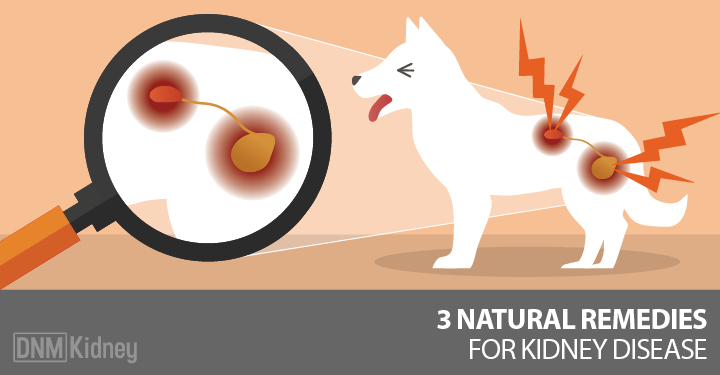Turmeric particularly curcumin, and its active compound, has been acknowledged as having potential benefits for improving joint health in both cats and dogs. Check out how turmeric can enhance joint health in your pet's joints:
Anti-inflammatory properties
Reduce Inflammation
Curcumin is the active ingredient in turmeric and is a potent anti-inflammatory ingredient. It reduces the activity of enzymes and cytokines that contribute to inflammation.
Curcumin is an effective anti-inflammatory that helps reduce inflammation and pain in joints. It can also help with other joint conditions like arthritis.
Antioxidant Effects
Oxidative-Stress Reduction
Curcumin is also a potent antioxidant function. It neutralizes cell damage-causing free radicals and inflammation-causing inflammation.
Benefits: Reducing oxidative stress helps protect joint tissues, slowing down the progression of joint disease and maintaining joint health.
Pain Relief
Natural Painkiller:
Curcumin is known for its ability to lessen pain by modulating the pain pathways.
Benefits : Natural relief from pain for pets that suffer from joint problems can enhance their quality of living and provide them with more comfort and physical activity.
Cartilage Protection
Inhibition of Cartilage Breakdown:
Curcumin reduces the enzymes that are responsible for cartilage breakdown.
Benefits: Preserving cartilage from degrading is crucial for maintaining joint function and health particularly for pets suffering from joint issues.
Immune System Modulation
Balanced Immune Reaction
Function: Curcumin promotes an immune system that is in balance and helps to regulate inflammation.
Benefits A healthy immune system can help improve joint health by preventing excessive inflammation.
Joint Health Overall Benefits
Increased mobility: Turmeric reduces inflammation and pain, while also preserving cartilage. This may help animals who suffer from joint problems enhance their mobility.
Pets that are less painful and have less agitation tend to show a higher level of activity and engagement that results in a higher-quality of life.
Use and Considerations
Dosage: The dose of curcumin or turmeric that you give to pets will be contingent on their weight, size, and health needs. Follow the instructions on the label or from your vet. To increase the absorption of curcumin, it is sometimes given with extracts of black pepper.
Turmeric supplements for dogs are available in a variety of forms. They include capsules as well as powders and chews. Selecting a high-quality pet-specific item ensures the safety and effectiveness.
Side Effects: Although generally safe, large doses of turmeric may cause gastrointestinal upset in some pets. It is recommended to begin at a lower dose and then increase it slowly. This will help reduce side effects. It is also important to watch for adverse reactions in pets, such as vomiting and diarrhea.
The article's conclusion is:
Turmeric particularly curcumin (its active ingredient), has many benefits for the joint health of both cats and dogs. Anti-inflammatory, pain-relieving, and antioxidant qualities of turmeric can reduce inflammation and joint pain and improve joint function and protect cartilage. Regular supplementation with turmeric can improve the mobility of joints in pets. Take a look at the best kidney failure in cats hints for blog info including yeast infections in dogs, pet supplements for pets with fear of loud noises, pet supplements for pets with mites, pet ashwagandha supplements, petbarn, natural pet supplements australia, pet joint supplements, pet supplements for pets with bad breath and more.

How Do Omega-3 Fatty Acids For Pets And Cats Aid Kidney Failure?
Omega-3 fatty acids, particularly EPA (eicosapentaenoic acid) and DHA (docosahexaenoic acid) can aid in managing kidney problems in dogs as well as cats by providing several benefits that support overall health and kidney health. They are able to aid in the management of kidney problems.
Anti-inflammatory properties
Reduce Inflammation
Function: The omega-3 fatty acid has strong anti-inflammatory properties, which reduces the production of proinflammatory chemicals such as cytokines or eicosanoids.
Benefits: Omega-3s can reduce kidney inflammation. This will stop kidney damage from progressing and help improve the functioning of the kidneys.
Blood Pressure Regulation
Reduce Blood Pressure
Function: The omega-3 fatty acid helps control blood pressure through enhancing vascular function and reducing inflammation within the body.
Benefits Reduced blood pressure eases the stress on kidneys and assists in protecting the kidney function.
Proteinuria Reduction
Reducing Proteinuria:
Function: Omega-3s decrease the leakage into urine of protein, also called proteinuria. This is a very common problem with kidney disease.
Reduced proteinuria can help to limit damage to kidneys that can occur in the future.
Glomerular Filtration Rate (GFR) Preservation
Supporting Kidney Retention:
Function Omega-3 fatty acids ensure the integrity of glomerular filtering this is the process that helps kidneys purify blood.
Benefits The ability to maintain a high GFR may help to slow the rate of progression and help preserve kidney function.
Appetite Stimulation (nutritional Support)
How to increase appetite
Omega-3s can be a fantastic method to increase the appetite and nutritional intake of pets with kidney problems.
Benefits of a healthier diet: It can promote general health and wellbeing in pets as well as help maintain muscle mass and weight.
Cardiovascular Health
Supporting Heart Health
Function Omega-3 fatty acids help cardiovascular health by reducing inflammation and blood pressure and enhancing lipid profiles.
Benefits: Improved cardiovascular health can reduce the risk of complications with kidney failure, such as heart disease, and enhance overall health and well-being.
Antioxidant Effects
Reducing Oxidative Stress:
Function: Antioxidant properties in omega-3 fatty acids help to reduce the oxidative strain on kidneys.
Benefits Reduced oxidative stress helps protect kidney cells and enhance kidney function.
Usage and Considerations
Dosage, administration, and dosage: The dose of omega-3 acids you give is contingent on the age of your pet weight, health, and size. It is important to follow doctor's advice or the instructions on the label. Fish oil supplements specially designed for pets are an ideal source of omega-3s.
Omega-3 supplements can be found for pets in a variety of forms. These are chews, liquid oils and capsules. It is essential to select a high-quality product to ensure safety and efficacy.
Omega-3 supplements can cause gastrointestinal upset in some pets. Start with a smaller dose then gradually increasing the dosage could help minimize the effects. It is crucial to monitor for reactions that could cause adverse effects, like diarrhea or nausea.
We also have a conclusion.
Omega-3 fatty oils positively impact the management of kidney failure in dogs and cats. Their anti-inflammatory, blood pressure-lowering, proteinuria-reducing, and appetite-stimulating properties help support kidney function and overall health. Omega-3 supplements have been proven to reduce the rate of progression of kidney disease as well as improve the quality of life and increase the well being of animals suffering from renal failure. Follow the recommended a replacement for probiotics for dogs for site advice including ear infections in dogs, pet supplements for pets with dull coat, pet supplements for pets with respiratory disease, pet hemp supplements, pet supplements for pets with fear of death, herbal pet treatments, australian natural pet products, natural pet supplements australia and more.

What Are The Ways That Cat And Dog Getting Rid Of Yeast Infections By Apple Cider Vinegar?
ACV can be used as a treatment for yeast infections in cats and dogs. The acidity of ACV can trigger side effects and is not advised without the supervision of a veterinarian. Here's the way ACV is thought to help in the treatment of yeast infections:
Antifungal Properties
An acidic environment
Function: ACV is acidic, with a pH ranging between 2.5 and 3. The acidic environment isn't favorable to yeast growth.
Benefits Utilizing dilute ACV topically or adding it to the pet's bathwater may help lessen the overgrowth of yeast on the skin as well as in ears.
Skin pH Regulating
Balancing Skin pH:
ACV could help regulate the pH levels of your skin. This could help promote a healthy skin barrier, and stop the growth of yeast.
Benefits: Keeping the right pH balance will prevent yeast acne on your skin and improve the health of your skin.
Anti-inflammatory properties
Reduce inflammation
ACV has mild anti-inflammatory effects.
Benefits: Lowering inflammation can help alleviate symptoms such as redness, itching, and discomfort associated with yeast infections.
Support for Digestive Health
Internal Use
ACV's function is to improve digestion by balancing the intestinal flora in low doses and in highly diluted form.
Benefits: Supporting general immune function, microbial balance and gut health can reduce yeast growth.
Utilization and other considerations
Topical Use: Dilute by adding water (typically 1 to 2 parts ACV for 1 part water) and apply the spray to the affected area of the ears or the skin. Do not apply directly to wounds that are open or on sensitive skin.
Consult your physician prior to using ACV internally. ACV must be extremely dilute (e.g. 1 teaspoon to 1 tablespoon for every cup of water) and administered in small quantities to prevent potential gastrointestinal upset or irritation.
Examine for any signs of irritation or allergic reactions, when applying ACV on the skin. Refrain from using ACV if negative reactions do occur.
Consultation with Veterinarians Prior to making use of ACV in treating yeast infections in pets, consult a vet. They can provide guidance on proper dilution techniques, methods of application, and potential risks dependent on your pet's individual health needs.
End of Service
Although apple cider vinegar could provide benefits in the treatment of yeast infections in cats and dogs, its use should be done with care and under the supervision of a veterinarian. ACV's acidic qualities can impede yeast growth in the ears and on the skin. It is also possible that they provide mild antiinflammatory benefits. However, proper dilution and careful application are essential to avoid irritation or adverse reactions. ACV is effective and safely by following veterinary guidance as a part of a comprehensive treatment plan for treating yeast diseases in dogs. Take a look at the top helpful site for herbs good for dogs for website tips including pet wellness supplements, pet collagen supplements, pet bone broth supplements, herbal supplements for cats, pet supplements for show dogs and cats, pet supplements for pets with joint pain, canineceuticals, pet supplements for foster pets and more.
